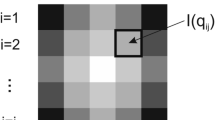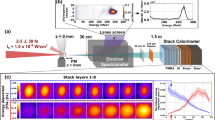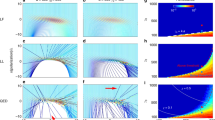Abstract
IN a letter to NATURE of December 4, Prof. J. A. Gray pointed out that a study of radiations of shorter wave-length than 0.02 Å.U. is complicated by the scattered radiations accompanying them, about which little is known. That gamma rays under certain experimental conditions appear to become less penetrating as they pass through matter was shown by Dr. Gray in 1913. Recently it has been shown by me (Phil. Mag., Oct. 1926, p. 785) that the scattered radiations were considerably softer than the gamma rays producing them, and evidence was given of a comparatively soft radiation from air penetrated by gamma rays. Confirmatory experiments have since been made, a brief reference to which may not be without interest.
This is a preview of subscription content, access via your institution
Access options
Subscribe to this journal
Receive 51 print issues and online access
$199.00 per year
only $3.90 per issue
Buy this article
- Purchase on Springer Link
- Instant access to full article PDF
Prices may be subject to local taxes which are calculated during checkout
Similar content being viewed by others
Author information
Authors and Affiliations
Rights and permissions
About this article
Cite this article
CLARK, L. The Scattering of Gamma Rays. Nature 119, 121–122 (1927). https://doi.org/10.1038/119121b0
Issue Date:
DOI: https://doi.org/10.1038/119121b0
Comments
By submitting a comment you agree to abide by our Terms and Community Guidelines. If you find something abusive or that does not comply with our terms or guidelines please flag it as inappropriate.



